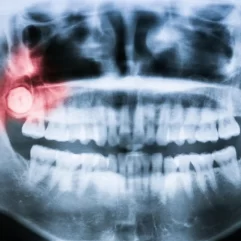Postoperative Nursing Care After Dental Surgery
Benefits of Postoperative Nursing Care: Navigating the Path to Recovery After Dental Surgery
The road to recovery after dental surgery can be challenging. While having a skilled surgeon perform your procedure is crucial, proper postoperative nursing care is equally important to ensure a smooth recovery process.
Patients traveling alone may not have someone to assist them with basic tasks such as preparing food, taking medication, and changing dressings. Postoperative nursing care can ensure that these tasks are handled and that the patient receives the proper nutrition and medication needed for a speedy recovery.
If you are considering getting dental surgery in Mexico and are unsure how to handle post-surgery care, do not worry; you are not alone. Many people have the same concern.
What is Postoperative Nursing Care?

Providing personalized and compassionate aftercare for patients following their dental procedures. #PatientFirst #PostoperativeCare #DentalHealth
Postoperative nursing care extends support to a patient immediately after a surgical procedure. This type of care includes monitoring vital signs, managing pain and discomfort, administering medication, providing wound care, and assisting with mobility. Postoperative care aims to reduce anxiety, assist in the patient’s safe recovery, and reduce potential complications or infections in the first few days after dental surgery.
Postoperative nursing care for the first few days after dental surgery can be highly beneficial. They can monitor your vital signs, help you with pain management, care for your wounds, and assist you with moving around and recovering. This kind of care can help you recover quickly and safely, reducing the chances of complications and giving you peace of mind.
Some of our dental clinics in Mexico offer affordable, professional postoperative nursing care provided by registered nurses to support you through the first few days after dental surgery. Their experienced registered nurses are dedicated to providing our patients with the highest level of care and comfort, helping them feel at ease and confident in their recovery journey.
Postoperative Nursing Care Background and Qualifications
Registered nurses who hold full-time positions at local hospitals provide postoperative nursing care services at our dental clinics in Mexico. As a secondary job, they provide postoperative care to patients, allowing them to bring experience and expertise to support dental patients during their recovery. They also speak English.
Postoperative nursing care is a personal service offered to patients after a surgical procedure. Patients have the choice to receive extra support. The care is tailored to meet each patient’s specific needs, considering their medical background, progress in recovery, pain management requirements, and general health under your doctor’s direction.
This personalized approach can assure patients of the appropriate care and help facilitate a safe and effective recovery. By adjusting the services to fit the individual needs of each patient, postoperative nursing care aims to improve comfort, aid in healing, and achieve the best possible results following surgery.
Here are Some Benefits of Postoperative Nursing Care
Monitor Vital Signs:

Ensuring the patient’s well-being by closely monitoring vital signs after dental surgery. #PatientSafety #PostoperativeCare #NursingExcellence
Postoperative nursing care monitors the patient’s vital signs, such as blood pressure, heart rate, and oxygen saturation levels, to ensure overall health and well-being. By regularly checking the patient’s blood pressure, postoperative nurses can assess the strength of the patient’s circulatory system and determine if any underlying issues are causing abnormal readings.
Postoperative nursing care monitors a patient’s heart rate and helps healthcare providers understand the efficiency of the patient’s cardiovascular system. Continuous heart rate monitoring can detect changes early and prompt medical intervention if necessary.
Postoperative nursing care monitors a patient’s oxygen saturation levels and is also essential for monitoring a patient’s vital signs. Monitoring oxygen saturation levels is particularly important in patients with respiratory conditions or those recovering from surgery, as inadequate oxygen levels can lead to complications and delayed healing.
By closely monitoring these vital signs in postoperative nursing care, healthcare professionals can quickly identify deviations from the normal range and take appropriate actions to prevent potential health risks. Ultimately, continuous monitoring of vital signs is critical in providing quality care and ensuring the well-being of patients.
Administer Medications:

Administering precise medications for optimal postoperative pain management and healing. #PatientComfort #MedicationManagement #NursingCare
Postoperative nursing care includes administering medications to the patient as the doctor prescribes. After a surgical procedure, they are crucial in managing the patient’s pain and ensuring their comfort during recovery. Administering medications as prescribed by the doctor is a key responsibility of postoperative nurses. Pain management is a top priority in postoperative care, as surgical procedures can cause varying levels of discomfort and pain for patients.
Postoperative nursing care carefully follows the doctor’s orders regarding the type, dosage, and timing of medications to be administered. Pain medications are commonly used to alleviate postoperative pain and promote the patient’s comfort. The postoperative nurse will regularly assess the patient’s pain level and adjust the medication to ensure optimal pain relief.
In addition to pain management, postoperative nursing care may also administer other medications as prescribed by the doctor to address specific postoperative needs. These medications may include antibiotics to prevent infection, antiemetics to control nausea and vomiting, or sedatives to promote relaxation and sleep.
Administering medications requires precision and attention to detail to ensure the patient’s safety and well-being. Postoperative nursing care provides the accuracy of medication administration. They also monitor the patient for adverse reactions or side effects and promptly report any concerns to the doctor.
Overall, administering medications as prescribed by the doctor is essential to postoperative nursing care services. Through their expertise and vigilance, postoperative nurses help manage pain, prevent complications, and support the patient’s recovery following surgery.
Wound Care of Surgical Sites:
Postoperative nurses can provide wound care to ensure patients’ incisions heal properly and prevent complications. They are crucial in ensuring dental patients’ incisions heal properly and prevent complications through effective wound care. One of their key responsibilities is monitoring the patient’s surgical site for signs of infection or other complications. They assess the incision site for any signs of redness, swelling, warmth, or drainage that could indicate an infection.
In addition to monitoring the surgical sites, postoperative nurses assist with changing dressings and cleaning the incision site as needed. This involves using sterile techniques to prevent wound contamination and decrease the risk of infection.
Postoperative nurses may also educate patients on proper nutrition and hydration to support healing. Adequate nutrition is essential for wound healing, as certain nutrients are crucial in the body’s ability to repair and regenerate tissues.
Additionally, postoperative nurses may collaborate with the dental care team to ensure the patient receives appropriate pain management and medication to alleviate discomfort and promote healing.
Overall, postoperative nurses ensure dental patients receive high-quality wound care to facilitate proper healing and prevent complications. Their expertise and attention to detail help to promote positive outcomes for patients undergoing oral surgery procedures.
Report Unusual Signs to Your Doctor:
They can quickly recognize and report any unusual signs that indicate you may need additional medical intervention. Postoperative nurses are trained to monitor patients closely after dental surgery and are skilled at detecting any unusual signs that may indicate the need for further medical intervention. They diligently evaluate patients for any signs of complications or adverse reactions to surgery, anesthesia, or medications. By carefully watching vital signs, pain levels, and overall well-being, postoperative nurses can promptly identify any concerning symptoms, notify their doctor, and take appropriate action.
For instance, if a patient experiences sudden and severe pain, excessive bleeding, swelling, or redness at the surgical site, a postoperative nurse will quickly assess the situation and determine the cause. They will also watch for signs of infection, like fever, chills, or increased drainage from the wound. Early recognition of these signs is crucial in preventing more serious complications from arising.
Postoperative nurses are proficient in communication and promptly report unusual findings to the healthcare team, including the surgeon and anesthesiologist. They are crucial in advocating for the patient’s well-being and promptly addressing concerns. If additional medical intervention is needed, the postoperative nurse will collaborate with the dental clinic team to provide the necessary treatment.
When a patient may be experiencing a severe allergic reaction, respiratory distress, or another acute medical emergency, postoperative nurses are trained to act swiftly and efficiently. They are ready to implement emergency protocols, administer life-saving interventions, and ensure patients receive timely care.
Overall, postoperative nurses’ ability to recognize and report any unusual signs indicating the need for further medical intervention is vital in ensuring the safety and well-being of patients following dental surgery. Their expertise and proactive approach contribute to effective postoperative care and optimal patient outcomes.
In conclusion, postoperative nurses ensure dental patients receive high-quality wound care to promote healing and prevent complications. Their expertise and attention to detail are key to achieving positive outcomes for oral surgery patients.
Assist with Patient Mobility:
They can assist the patient with mobility, such as getting in and out of bed, walking, and using the bathroom. Postoperative nurses play a vital role in helping patients with mobility following dental surgery to ensure comfort, prevent complications, and promote healing. Their primary duty is to assist patients with daily activities, especially right after surgery, when patients may experience pain, dizziness, or weakness due to anesthesia or the procedure.
This assistance includes helping patients safely move in bed, repositioning them to avoid bed sores, and assisting with walking and going to the bathroom. Postoperative nurses ensure patients move early to prevent blood clots, pneumonia, or muscle weakness.
They use proper techniques to help patients move, considering any restrictions or precautions the surgical team gives. They also provide guidance and motivation to gradually help patients regain strength and independence.
Postoperative nurses also educate patients on ways to improve mobility and prevent falls, such as using devices like walkers or canes and navigating stairs safely.
Overall, postoperative nurses ensure patient comfort, safety, and well-being after dental surgery. Their expertise in providing physical support and guidance is essential for patients to regain independence and recover successfully.
Provide Emotional Support:
They can support the patient and their family emotionally during stressful times. They can call family members to give updates on your progress. Postoperative nurses provide emotional support to patients and their families following dental surgery. They recognize that undergoing surgery can be overwhelming and strive to offer compassionate care to reduce anxiety and promote comfort.
In addition to addressing physical needs, postoperative nurses focus on emotional well-being. They build therapeutic relationships with patients through empathy, active listening, and a non-judgmental approach to create a supportive environment.
Postoperative nurses keep patients and families informed about the patient’s progress, easing anxiety. They update family members on the patient’s condition, discuss surgery outcomes, and address concerns. This communication helps loved ones cope with uncertainty.
During recovery, postoperative nurses guide patients in managing pain, coping with discomfort, and setting realistic expectations. They also provide a compassionate presence to support patients and families during challenging times.
Furthermore, postoperative nurses collaborate with other healthcare team members to offer additional emotional support resources. They facilitate communication between patients and healthcare providers to ensure patients feel understood throughout their recovery.
Overall, postoperative nurses are vital in providing emotional support to patients and families after dental surgery. Their dedication to holistic care contributes to a positive and healing experience for all involved.
Prepare Healthy Soft-food Meals:
Postoperative nurses can play a crucial role in supporting a patient’s healing process by preparing nutritious meals. After surgery, the body needs extra nutrients to help heal.

Caring for patients after dental surgery with nutritious and comforting soft diet meals. #PostoperativeNutrition #PatientCare #HealingMeals
and recover. By providing balanced meals, postoperative nurses can improve patients’ nutrition intake and boost their healing ability.
Apart from meal preparation, postoperative nurses collaborate with dietitians and other healthcare professionals to create personalized nutrition plans for each patient. This includes considering any dietary restrictions or preferences and adjusting the meal plan to ensure the patient gets enough nutrition throughout recovery.
By offering healthy meals, postoperative nurses can speed up healing, reduce the chance of complications, and enhance the patient’s overall well-being during recovery. Their nutrition knowledge and dedication to helping patients through their healing process make them essential to the healthcare team in postoperative care.
Grocery Shopping:

Going the extra mile to ensure our patients have everything they need for a speedy recovery, one grocery trip at a time. #DedicatedCare #PatientWellness #NursingExcellence
They can go to the store and shop for food and essential items you may need so you can continue resting. Postoperative nurses can extend their help by shopping for food and essential items to ensure patients have everything they need for a comfortable and smooth recovery. This additional service can be very beneficial for patients, especially for those who have limited mobility or support at home.
By taking care of grocery shopping and providing essential supplies, postoperative nurses can relieve the stress and burden that patients may feel about leaving their homes to run errands while still recovering. This allows patients to continue resting and focusing on their recovery without worrying about managing daily tasks.
Postoperative nurses can also utilize their expertise in nutrition to choose appropriate foods that align with the patient’s dietary needs and preferences. They can ensure that their prepared meals are nutritious and supportive of healing, enhancing the patient’s recovery.
In general, postoperative nurses’ willingness to support patients in this manner demonstrates their commitment to providing holistic and personalized care. By going beyond their regular nursing responsibilities, postoperative nurses can significantly impact the patient’s recovery experience, creating a sense of comfort and reassurance during a vulnerable time.
The Takeaway

Recovery with Personalized Postoperative Care After Dental Surgery.
Overall, postoperative nursing care is crucial for patients traveling to Mexico alone for major dental procedures. It ensures they have the necessary support and monitoring for a successful recovery. With a professional caregiver, patients can be confident that they receive the best care during this critical time.
Choosing to receive postoperative care within 24-48 hours after dental surgery can significantly benefit patients. A dedicated private nurse can offer individualized care and attention, which can help speed up their recovery and improve their overall well-being. This customized care can also reduce the risk of complications and provide patients peace of mind, ensuring they can return home safely and comfortably. Proper follow-up care is essential for minimizing complications and supporting the recovery process. By proactively planning for this care, patients can ensure a smooth recovery.
If you have questions or need additional information, please Contact Us or Request a Quote to send us your dental inquiry, and we’ll get back to you.












